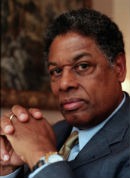Many people seem shocked at the recent savagery of a mob of students at Middlebury College, who rioted to prevent Charles Murray from addressing a student group who had invited him to speak. They also inflicted injuries requiring hospitalization on a woman from the faculty who was with him.
Where have all these shocked people been all these years? What happened at Middlebury College has been happening for decades, all across the country, from Berkeley to Harvard. Moreover, even critics of the Middlebury College rioters betray some of the same irresponsible mindset as that of the young rioters.
The moral dry rot in academia — and beyond — goes far deeper than student storm troopers at one college.
Frank Bruni of the New York Times, for example, while criticizing the rioters, lent credence to the claim that Charles Murray was “a white nationalist.” Similar — and worse — things have been said, in supposedly reputable publications, by people who could not cite one statement from any of Dr. Murray’s books that bears any resemblance to their smears.
Academia, however, is ground zero in the war against people whose ideas go against the current political correctness. The virtual monopoly of the political left, on campuses across the country, allows all sorts of things to be attributed to people the left disagrees with, irrespective of whether those people have ever said anything resembling what they are alleged to have said.
The professors don’t usually riot against people whose ideas they disagree with, because they can just dismiss those ideas, with some characterization that there is no one on hand to challenge.
Professor William Julius Wilson of Harvard, for example, said of Justice Clarence Thomas, “He’ll say he pulled himself up by his own bootstraps. I say I was in the right place at the right time.”
Just where did Justice Thomas say that he pulled himself up by his own bootstraps? The central theme of his autobiography, titled “My Grandfather’s Son,” credits the wisdom of the grandfather who raised him as what saved him.
Nuns who taught him in school were brought to Washington, at his expense, to be present to see him sworn in as a Justice of the Supreme Court, to see that their dedicated efforts on his behalf had not been in vain.
But has anyone ever asked Professor Wilson on just what he based his claim about Justice Thomas? The central tragedy of academia today is that you don’t have to have anything on which to base dismissals of people and ideas you disagree with.
This attitude is not unique to William Julius Wilson or to Harvard. On the west coast, Professor Lanny Ebenstein of the University of California at Santa Barbara has included economists Stephen Moore and Walter Williams, as well as television host John Stossel among those “committed to the welfare of the top few.”
Professor Ebenstein has every right to disagree with these individuals on economic or other issues. But that is very different from attributing to them a commitment to “the welfare of the top few.”
It so happens that I have read books by all three, without finding any preoccupation with the welfare of the affluent or the rich. I have known Walter Williams for more than 40 years. When we both lived on the east coast, we and our wives often met socially.
In all that time, neither in public nor in private did I ever hear Walter Williams express the slightest concern for the welfare of the affluent or the rich. Innumerable times I heard him focus his concern on the well-being of people like himself, from a poverty background. That concern was also expressed in deeds as well as words.
But who is going to ask Professor Ebenstein to cite the basis for his claim?
Why should we expect students to welcome debate about differences of opinion, when so many of their professors seem to think cheap shot dismissals are all you need? Lacking their professors’ verbal dexterity or aura of authority, students use cruder methods of dismissing things they disagree with.
So long as academia talks demographic “diversity” and practices groupthink when it comes to ideas, we have little reason to expect better of student mobs that riot with impunity.
COPYRIGHT 2017 CREATORS.COM
 Thomas Sowell is a senior fellow at the Hoover Institution, Stanford University. Visit his site at www.tsowell.com.
Thomas Sowell is a senior fellow at the Hoover Institution, Stanford University. Visit his site at www.tsowell.com.
The views expressed in opinion articles are solely those of the author and are not necessarily either shared or endorsed by Black Community News.
 CURE News and Clergy Blog News and Commentary for Christians
CURE News and Clergy Blog News and Commentary for Christians



